Hidden among the rolling fields of Cornwall, down a single-track lane that ends where the hedges meet the sea wind, stands a small wooden workshop. Its door is always open, the air thick with the scent of shavings and oil. Inside, tools rest like old friends on the wall. And at the center of it all is Dominic Pearce — the Cornish Woodsmith — coaxing life from fallen trees.
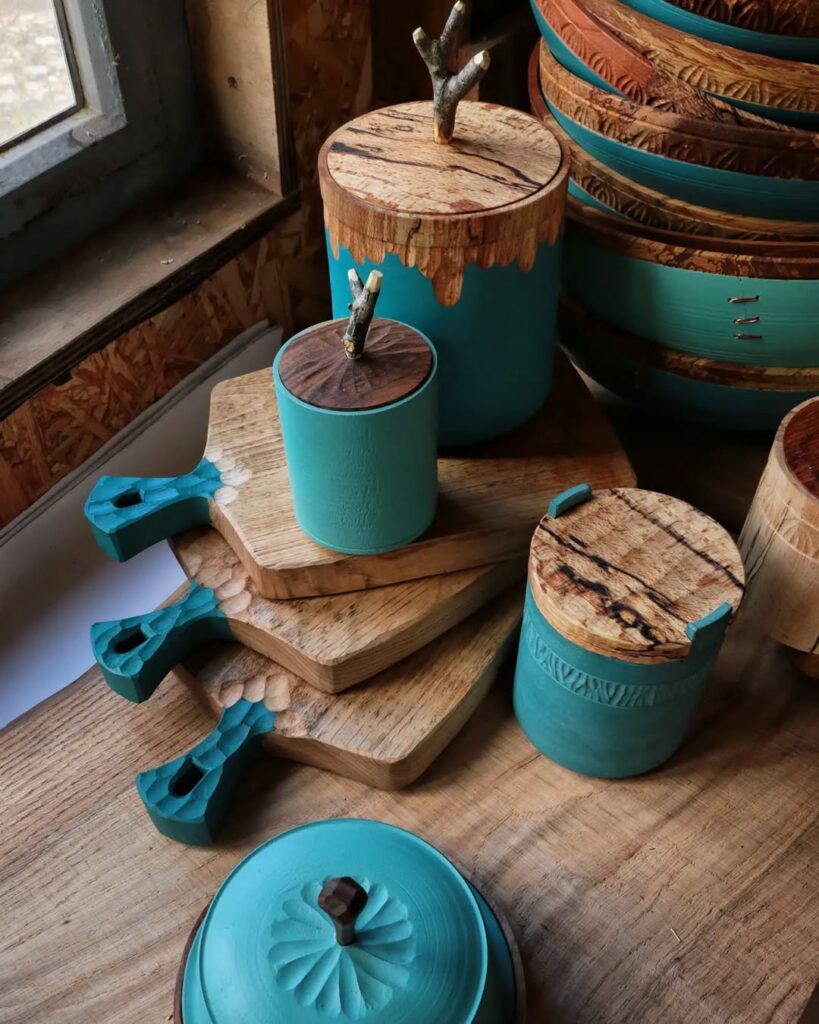
The Beginning of a Craft
Dominic grew up surrounded by the sound of saws and the rhythm of hand planes. His grandfather’s shed was the first workshop he knew, a place where tools had their own quiet music and wood dust floated in sunlight like golden snow. Those early memories never left him. After studying environmental science and product design, he spent years restoring historic buildings — work that taught him respect for time, structure, and the nature of green oak.
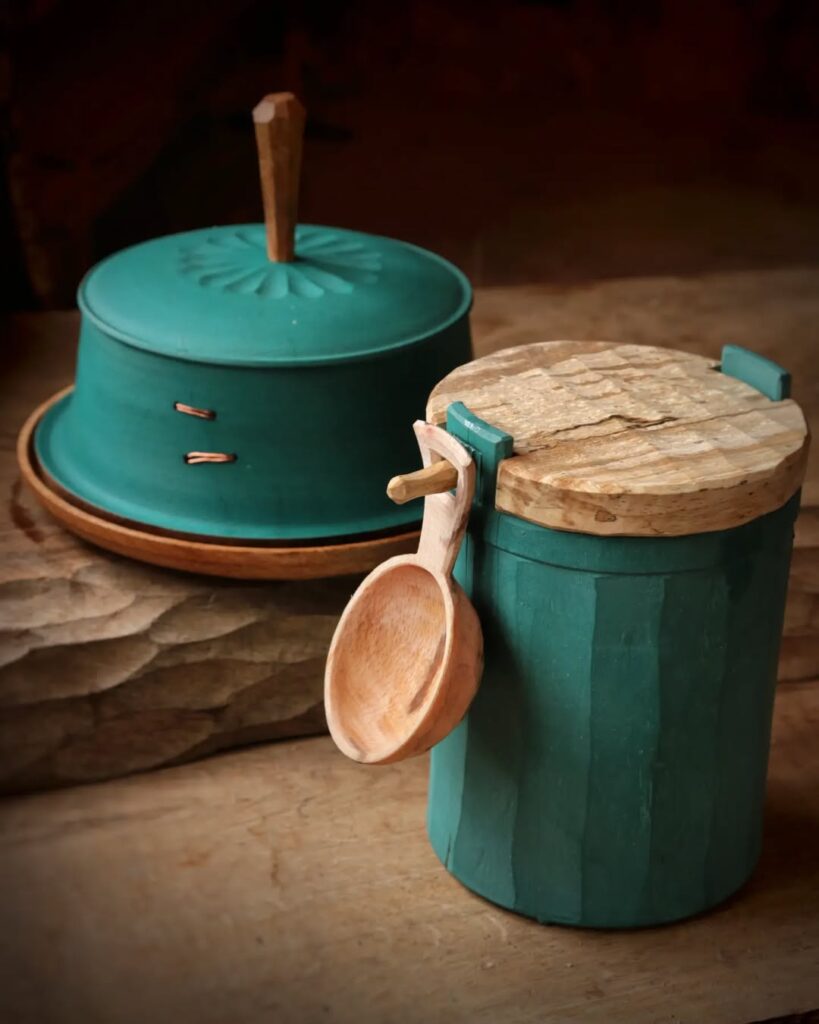
But Cornwall has a way of calling people home. Drawn back by its rugged landscapes and the timeless feel of its villages, Dominic began shaping his own path, one rooted in both tradition and renewal. He founded Cornish Woodsmith to create objects that were not just beautiful, but honest — things meant to be used, handled, and cherished for decades.
The Soul of the Workshop
Step into his workspace and you feel it instantly — this is not a place of machines and noise, but of rhythm and patience. A bowl half-turned rests beside the lathe. A line of hand-carved spoons dries on the sill, their curved edges catching the light. The smell of beech and sycamore lingers in the air.
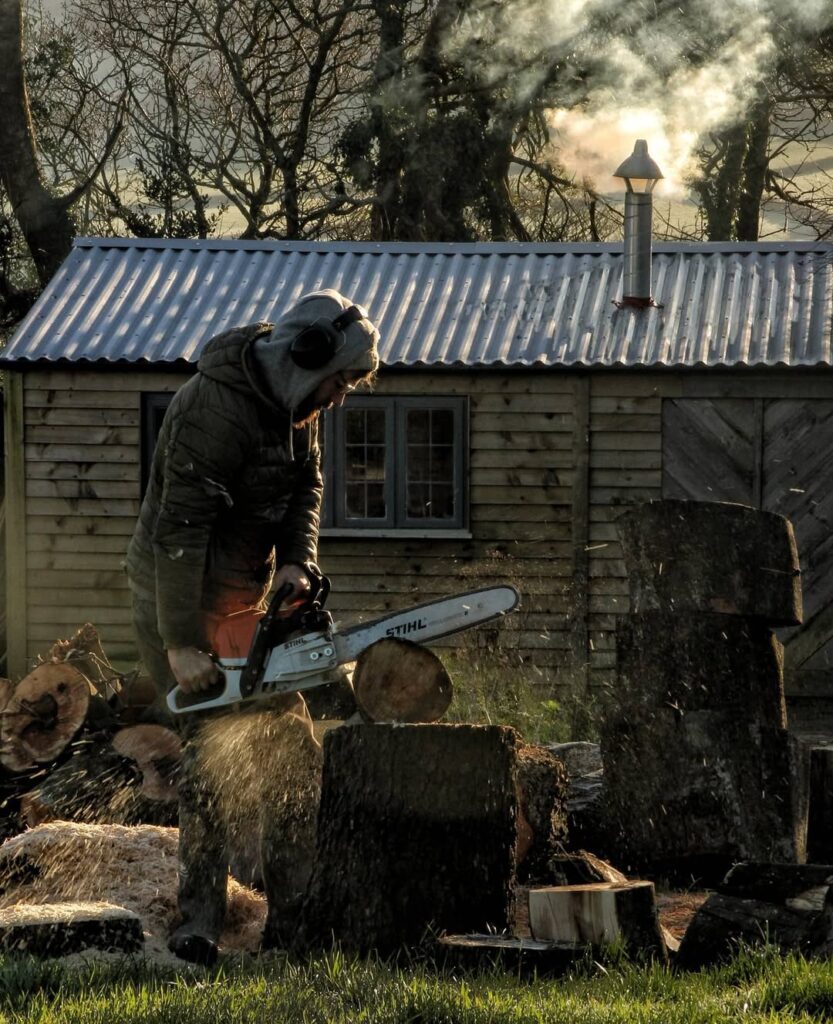
Dominic works mainly with native hardwoods — oak, ash, birch, and sycamore — often gathered from wind-fallen trees or small local sawmills. Every piece begins with a walk: through a woodland after a storm, or a call from a neighbour who has lost an old apple tree. He sees possibility in what others might call waste. “Wood has already done its part,” he once said. “It’s been alive longer than any of us. My job is simply to give it one more life.”
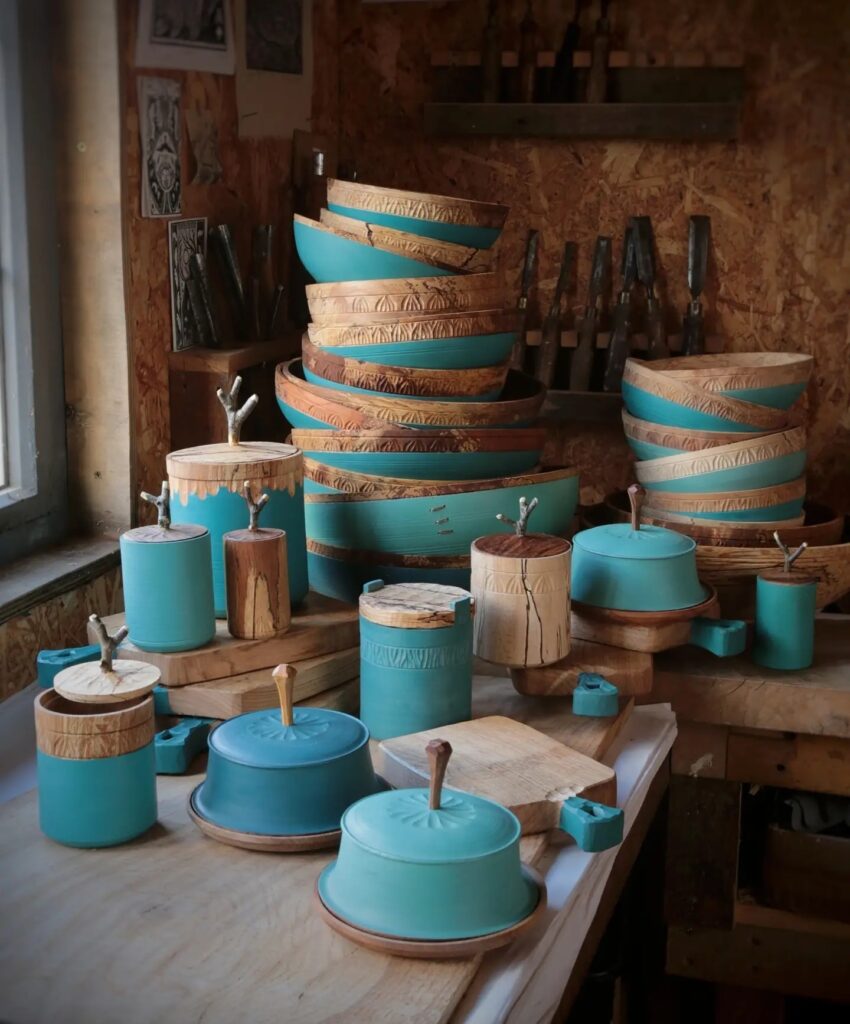
Hand and Grain
Each utensil or vessel begins raw and imperfect. A block of green wood still damp from the forest floor becomes a spoon through hours of shaping and turning. Dominic’s tools are simple — axe, knife, chisel, gouge — but in skilled hands they sing. He follows the natural grain, letting it dictate the curve rather than forcing a pattern upon it. The result is always slightly unpredictable: no two bowls ever share the same rhythm of line or tone.
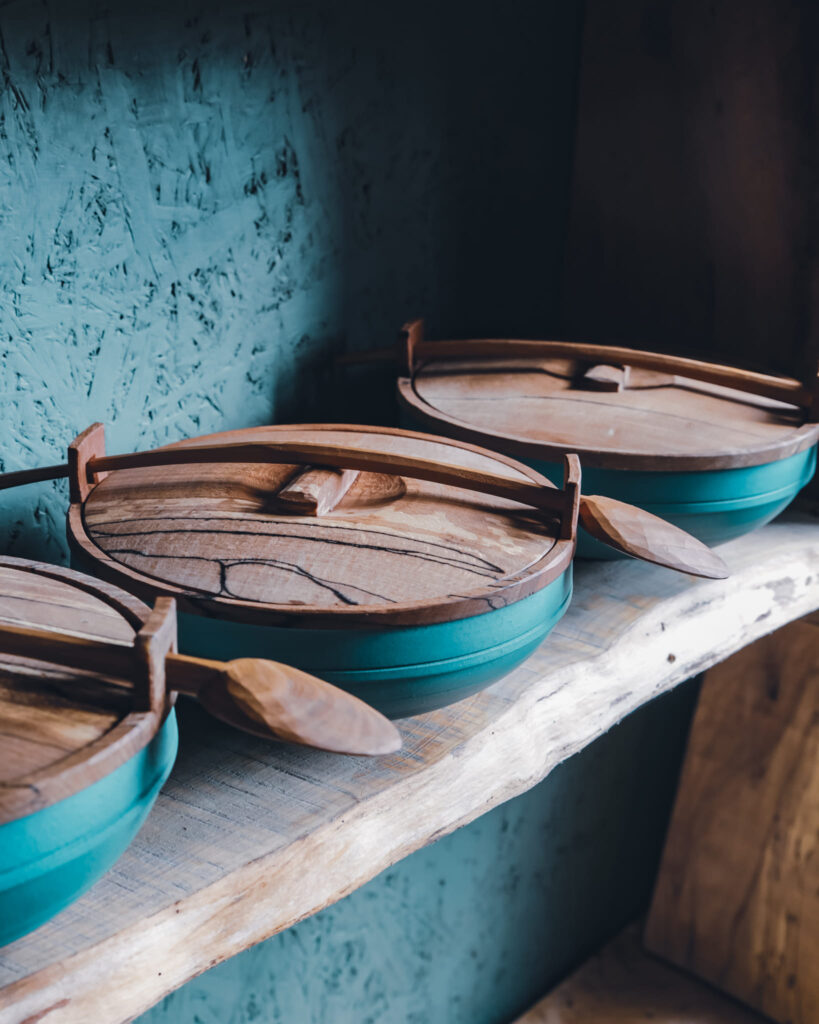
His pieces carry the quiet soul of Cornwall itself — rough-edged yet soft, practical yet poetic. You can almost see the wind in their shape, the coastline in their balance. He calls his work functional sculpture, and it’s easy to see why. Even an everyday butter spreader or tray has a touch of reverence about it, as if born of something older than fashion.
The Meaning of Slow Work
To watch him carve is to understand the meaning of slow craft. Each cut is deliberate, each pause considered. Dominic often speaks of “listening to the wood,” and that isn’t metaphor — moisture, tone, scent, resistance, all speak in their own language. He works with both hand and instinct, sensing when the timber has reached its limit or when a form is ready to emerge.
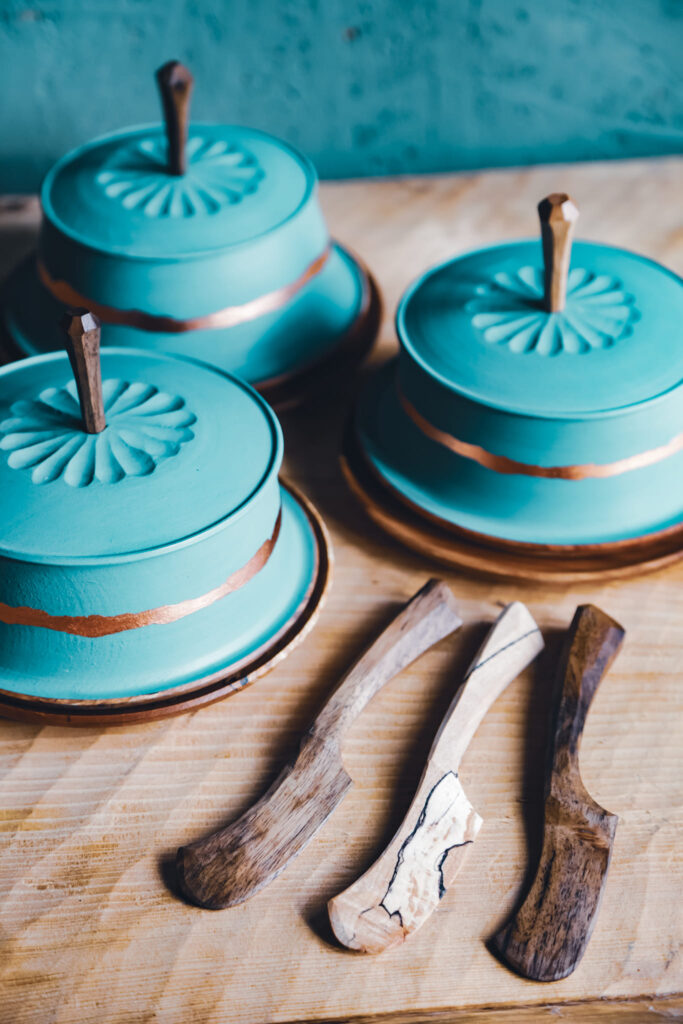
This slowness is a statement. In a world rushing toward convenience and sameness, Cornish Woodsmith stands as quiet resistance — a reminder that beauty and usefulness can still come from time and touch. His pieces are made to be handled daily, to darken with age, to gather stories through use. “Perfection,” he says, “isn’t what I aim for. Character is.”
More Than Objects
What makes his work so magnetic isn’t just craftsmanship, but connection. Each bowl and spoon tells of a place — a Cornish woodland, a fallen branch, the curve of a coastline seen from a window. Many of his commissions come from people who want something personal: a serving bowl from the oak that once stood in their garden, or a table built from their family’s old barn beams. These aren’t just functional pieces — they’re memory keepers.
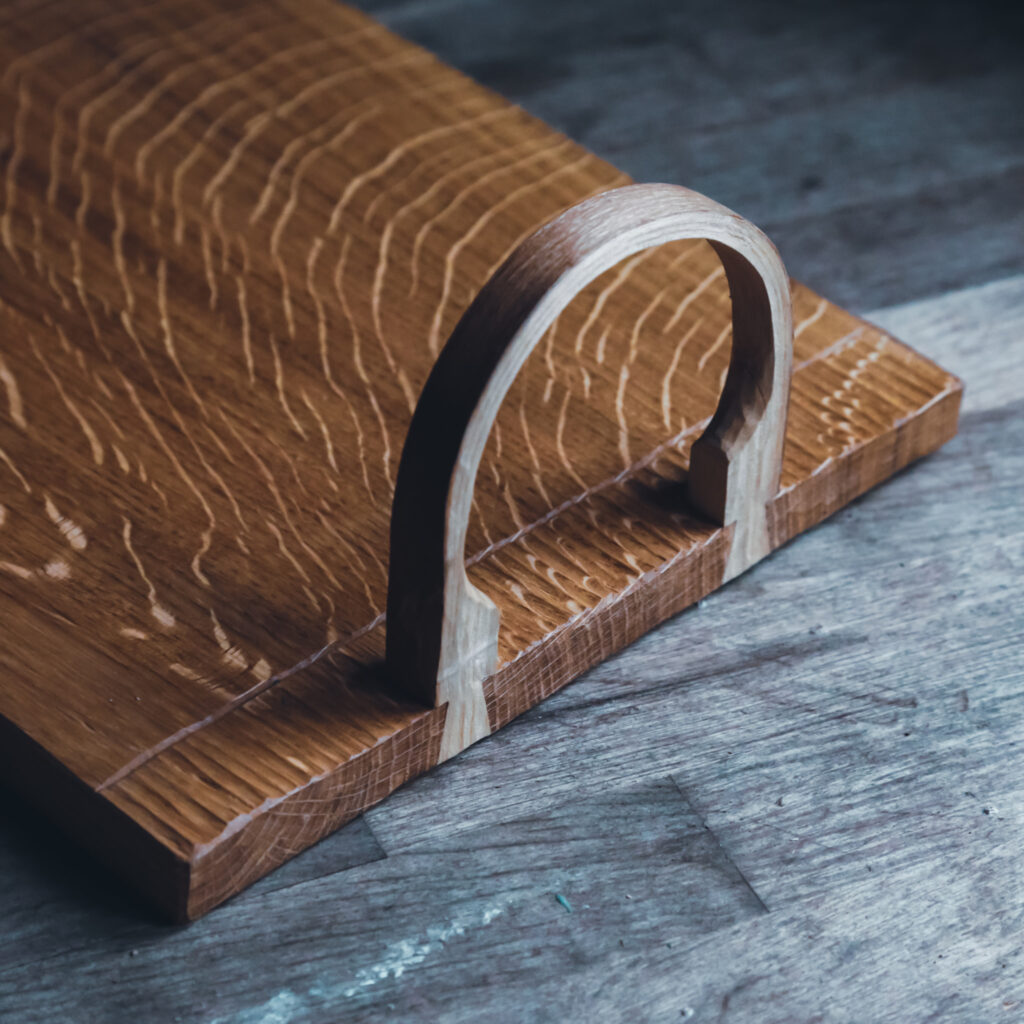
Dominic also teaches and collaborates locally, sharing his skills in traditional “sloyd” craft — a Scandinavian approach that combines handwork with philosophy. To him, woodworking isn’t only about making things, but about shaping patience, humility, and respect for nature. “A good piece of wood will show you what kind of person you are,” he likes to say with a grin.
A Craft Rooted in Place
Cornwall’s landscape shapes everything he does. The sea air changes how timber dries; the weather teaches endurance. Inspiration is never far away — from the twisting trunks along the coastal paths to the driftwood scattered after a storm. Even the muted light of the region, soft and persistent, seems to find its way into his finished work.

When asked what keeps him motivated, Dominic doesn’t hesitate. “The story,” he says. “Every tree has one. It grew somewhere, weathered seasons, maybe sheltered birds or children. When I make something from it, that story continues. Someone eats from that wood, holds it, passes it on. It becomes part of another life.”
The Modern Woodsmith
Cornish Woodsmith is more than a brand; it’s a return to roots. In a world of plastic and uniform design, Dominic’s craft feels like a conversation with the past — but not nostalgic. His website and social pages are filled with glimpses of his process: curls of shavings on the floor, a just-oiled surface gleaming like amber, the workshop bathed in afternoon light. There’s humility there, but also pride in doing something the slow way — because the slow way lasts.
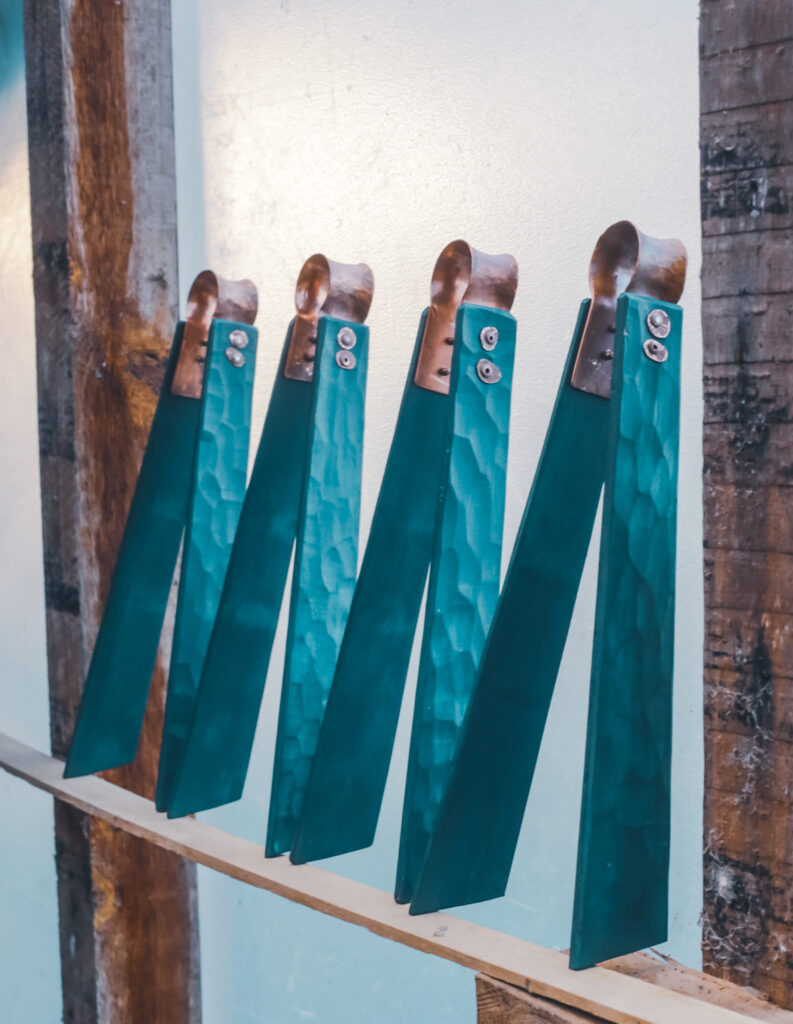
His customers span from locals who visit weekend markets to collectors around the world who value the handmade, the local, the story-rich. Each item is signed simply Cornish Woodsmith — no logo, no taglines. Just name, date, wood type. Enough said.
The Quiet Art of Belonging
Perhaps that’s what makes his work so deeply appealing — it belongs. To its maker, to its landscape, to its future owners. It reminds us that craftsmanship still matters, that a hand-carved bowl can hold not just food, but feeling. It invites us to slow down, to notice the way wood catches the light or warms to the touch.
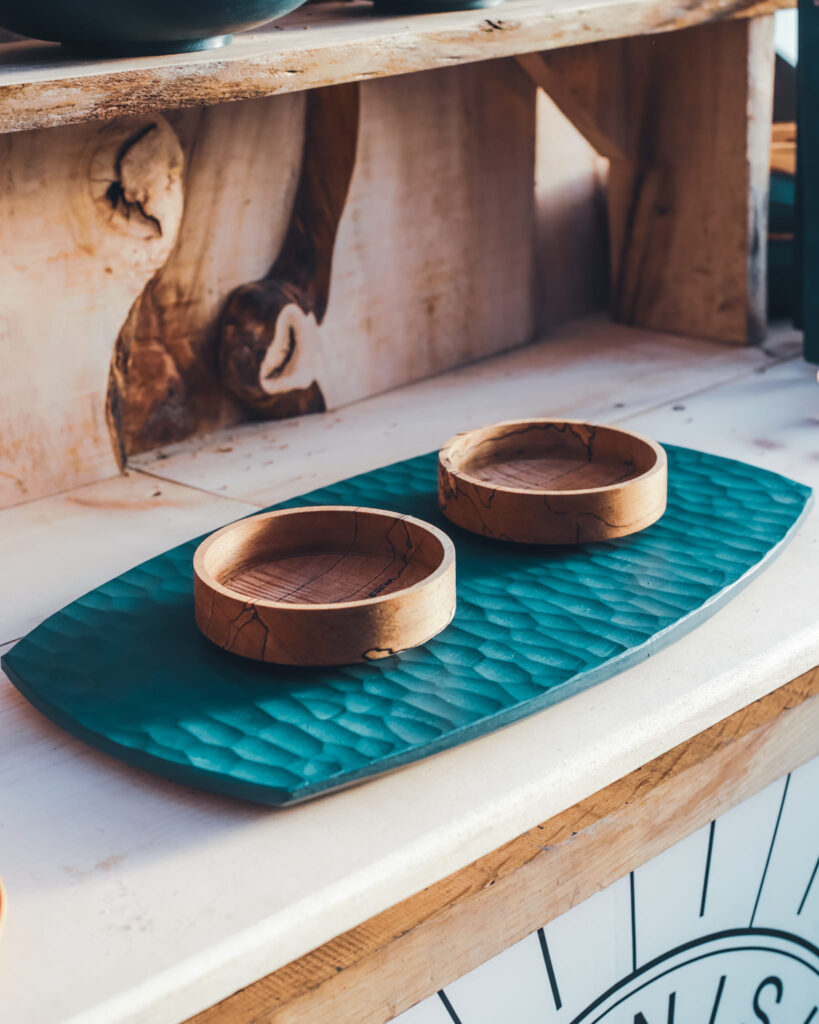
As the day fades in his workshop, Dominic wipes his hands, stacks a few finished spoons, and leans the broom against the wall. The shavings will wait till morning. Outside, the wind moves through the trees, and somewhere in that sound you can almost hear the echo of his work — the pulse of Cornwall, alive in every grain.
Dominic’s website: cornishwoodsmith.com
Instagram: @cornishwoodsmith
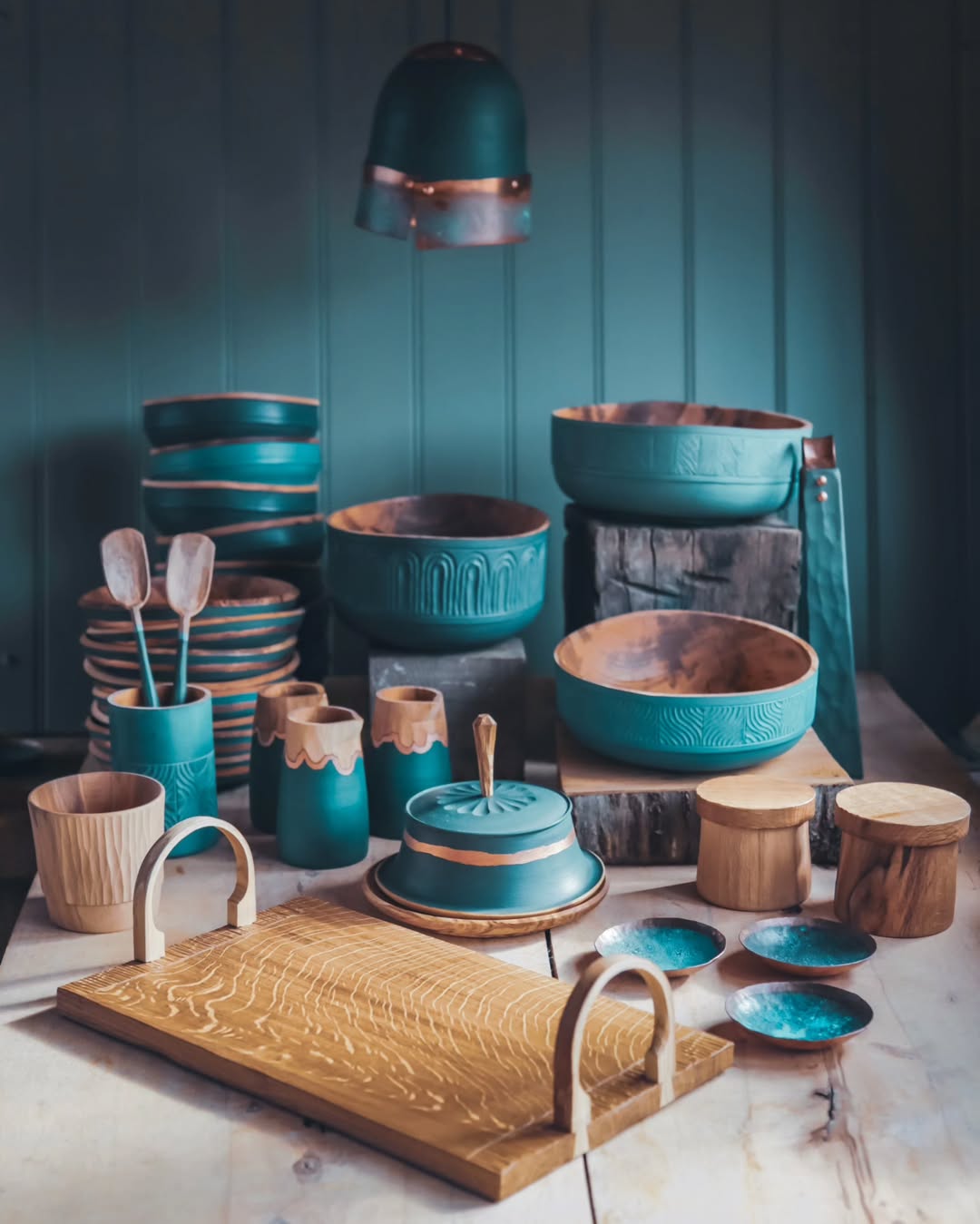
Reply